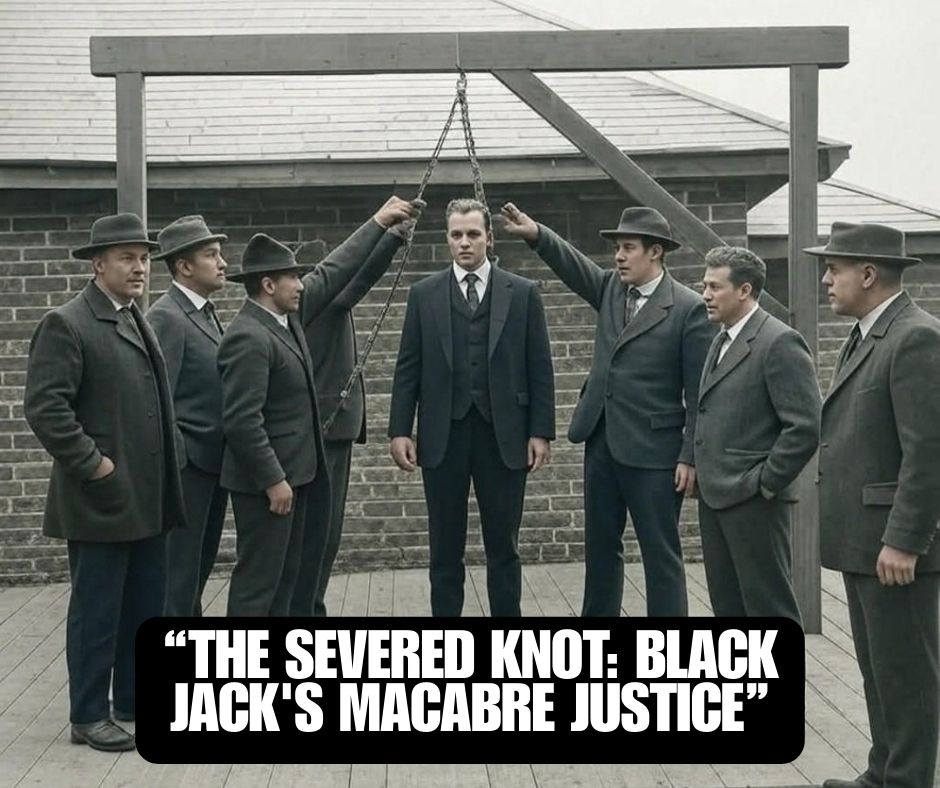The Severed Knot: Black Jack’s Macabre Justice

The air in Clayton, New Mexico Territory, hung heavy with a mixture of anticipation and grim satisfaction on April 26, 1901. Tom “Black Jack” Ketchum, a name synonymous with train robbery and frontier terror, stood poised on the gallows. His life of crime, a whirlwind of daring heists and narrow escapes, had finally culminated in this moment—a death sentence for a botched solo train robbery, and the ignominious distinction of being Union County’s first, and only, public hanging.
The gathered townsfolk, a somber sea of faces, expected a spectacle of justice, a final, definitive end to the legend of Black Jack. What they received, however, was a horrifying testament to the improvised, often brutal nature of justice in the untamed West. The local executioners, unversed in the precise, morbid art of the gallows, had made a critical miscalculation. The rope, meant to deliver a swift, albeit brutal, end, was cut far too long.
When the trapdoor gave way, the drop was catastrophic. Instead of a hanging, the force instantly decapitated Ketchum, his head severing cleanly from his body. A collective gasp rippled through the crowd, quickly followed by a stunned silence. What was intended as a solemn act of frontier justice had devolved into a gruesome, unforgettable accident, leaving the witnesses reeling and forever scarred by the macabre scene.
This haunting photograph captures not just the final moments of an outlaw, but a stark, visceral reminder of a time when the lines between law and chaos were blurred, and the mechanisms of justice were often as crude and unforgiving as the land itself. Tom Ketchum’s outlaw days ended on that scaffold, but the chilling tale of his final, unforeseen decapitation continues to echo through history—a grim, unsettling footnote in the annals of the Wild West.